Secretary of State’s office recovers over $100,000 in campaign finance fines

Alabamians, like most Americans, want transparency when it comes to politics. Part of that means being able to see who’s funding political candidates. Which is exactly why political candidates and Political Action Committees (PACs) are required to file campaign finance reports. But sometimes those reports aren’t filed on time, or at all. Which is why the state legislature passed act 2015-495 in 2015 that allows the Alabama Secretary of State’s office to issue fines when Principle Campaign Committees (PCCs) or Political Action Committees (PACs) don’t file their monthly, weekly, or daily campaign finance reports on time. The act went into effect with the start of the 2018 Election Cycle and since that time Secretary of State John Merrill‘s office has issued 1,166 penalties or warnings for a total amount of $197,657.84. Thus far, $102,249.05 has been paid. The money not yet paid has either been waived by the Alabama Ethics Commission or the office is still waiting to collect the funds from the committee. According to the Secretary of State’s office, “Penalties are issued to any committee that does not file their campaign finance report by midnight on the date the report is due. Most reports are due by 12:00 p.m. on the 2nd of each month. Committees are required to report all contributions and expenditures incurred by their campaign during the previous month.” Accordingly, penalty amounts increase as the number of late reports increases from the candidate. Additionally, the first report a candidate files late, but within 48 hours of the date the report is due, the committee is given a warning that does not count against them or require a fine be paid. Further, the code specifically states that warnings are not violations of the law. In addition to the warning process, committees have the ability to appeal their penalty to the Alabama Ethics Commission. Of the 1,166 penalties and warnings, 166 have been overturned. Fines paid by committees to the Secretary of State’s office is deposited directly into the state general fund.
Troy King files ethics complaint against opponent, AG Steve Marshall
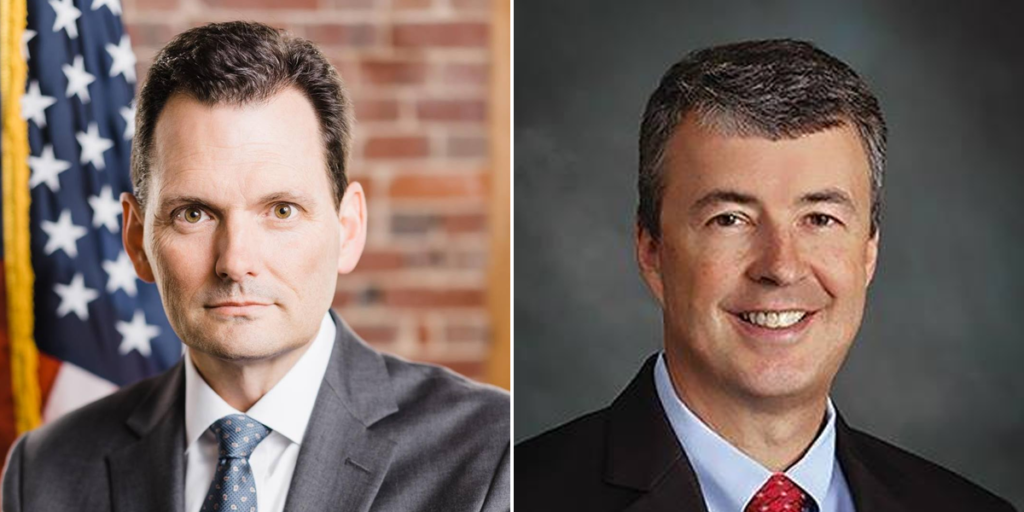
The primary runoff race for Alabama Attorney General is once again heating up now that both candidates, Troy King and Steve Marshall, have resumed their campaigns following the tragic death of Marshall’s wife. On Monday, King filed a complaint against Marshall with the Alabama Ethics Commission, accusing Marshall and his staff of accepting PAC-to-PAC money despite the state’s ban. The complaint details how King believes Marshall transferred at least $435,000 from the Republican Attorneys General Association (RAGA) PAC to his campaign fund, which has since been spent on television commercials, robocalls, direct mail to voters and other campaign activities. “As Attorney General, Steve Marshall should be upholding the law, not breaking it. Campaign finance laws should apply to him, just like they apply to everyone else,” King said. “As a former Attorney General, I understand that only when our laws are enforced as written do they act as an honest deterrent to election campaign wrongdoing. I am asking the Alabama Ethics Commission to investigate and prosecute this case swiftly and to the fullest extent of the law.” The state’s PAC-to-PAC ban In 2010, the State Legislature passed the PAC-to-PAC ban in 2010 in order to restrict donor’s ability to hide contributions by shuffling them through multiple PAC’s. AL.com recently reported that Marshall’s campaign found a loophole in the law and is doing nothing wrong. In fact, Marshall’s campaign told Alabama Today they’re pleased to accept the RAGA support. “We are pleased to have received support from RAGA Action Fund and trust they have complied with Alabama law,” Julia Mazzone said on behalf of the Marshall campaign. But King points to similar instance involving a RAGA PAC donation that occurred in 2014. Then former Attorney General Luther Strange tried accept a donation from the PAC, but ultimately returned the funds due to the PAC-to-PAC ban after an ethics complaint was filed against him. “Marshall should return the illegal money he received into his campaign immediately,” King continued. “Steve’s Marshall’s flagrant disregard for the law shows that he is not part of cleaning Montgomery up. Instead, he is among its biggest polluters. The corruption will not end until those who are corrupting the system are removed from office. Alabamians who are sick and tired of business as usual will have their say soon enough when they cast their votes on July 17th.” Knowingly violating the PAC-to-PAC ban is considered a Class A misdemeanor and is punishable by up to a year in jail and a $6,000 fine. This article has been updated to include a statement from the Marshall campaign.
Joe Biden launching fundraising PAC amid 2020 speculation
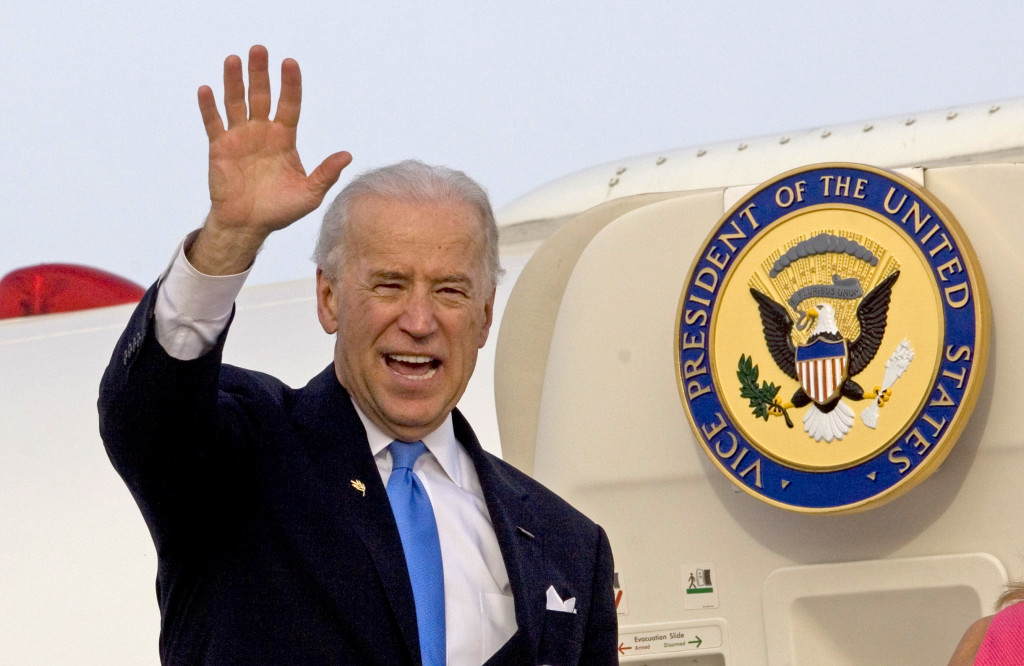
Former Vice President Joe Biden is launching a political action committee amid speculation that he may run for president in 2020. Biden plans to announce Thursday that he’s forming the “American Possibilities” PAC. The committee will allow him to raise money for candidates and maintain relationships with longtime donors. In an email to supporters and a Medium post, Biden plans to say that “the negativity, the pettiness, the small-mindedness of our politics drives me crazy.” Biden isn’t mentioning President Donald Trump by name but says that kind of politics is “not who we are.” The 74-year-old Biden has said he probably won’t run for president in 2020 but hasn’t totally ruled it out. He strongly considered running in 2016. Biden’s former White House aide Greg Schultz will run the PAC. Republished with permission of The Associated Press.
Secretary of State John Merrill says 92 candidates, PACS violate Alabama finance rules
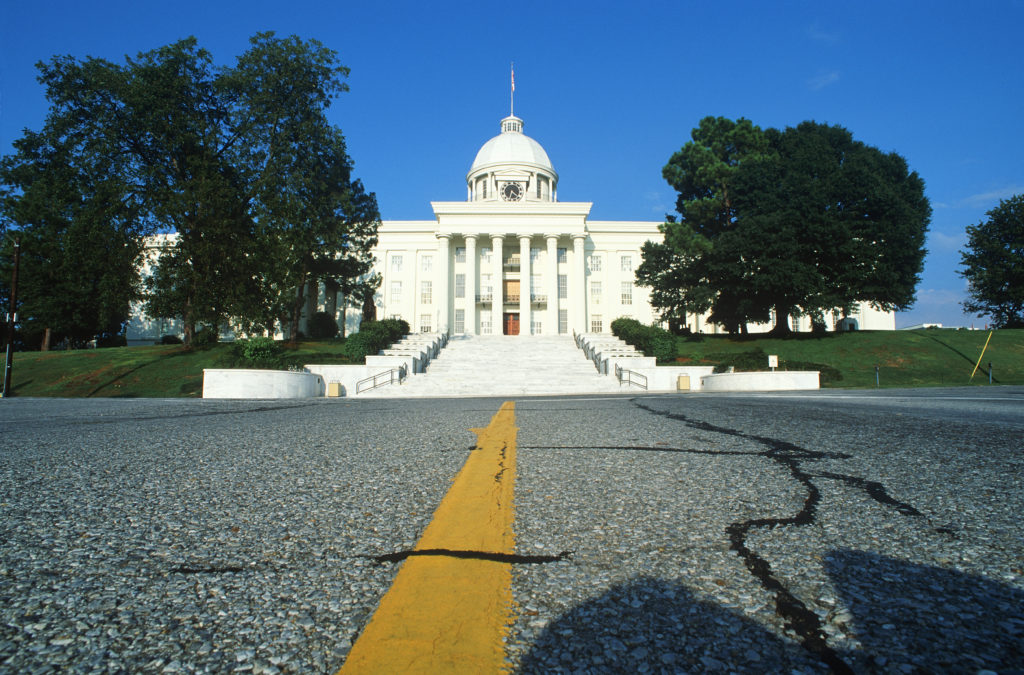
Alabama Secretary of State John Merrill says 92 political candidates and Political Action Committees (PACs) have broken campaign finance rules. Annually, by January 31, candidates that spend or raise more than $1,000 must file campaign finance reports showing campaign contributions and expenditures. In 2017, more than 1,000 candidates and PACs were required to file their 2016 Annual Report. As of Monday, 92 have not yet taken the steps necessary to reach full compliance. Merrill on Monday publicly released of all the candidates and PACs who missed the January deadline. “Our intention in releasing these names to the public is to further encourage candidates and PACs to bring their filings into compliance allowing the citizens of our state to review the extent of their fiscal responsibility,” Merrill said in a press release. At this time, no administrative penalties exist for those who missed the deadline. Beginning with the 2018 Election Cycle, which begins in June, administrative penalties will be levied. $300, or 10% of contributions or expenditures not reported, for first time offenders $600, or 15% of contributions or expenditures not reported, for second time offenders $1,200, or 20% of contributions or expenditures not reported, for third and subsequent offenses The full list of candidates and PACs not in compliance with the annual reporting requirement is available here.
11th Circuit upholds Alabama PAC transfer ban

A federal appeals court has upheld the constitutionality of Alabama’s campaign law, which bans the transfer of campaign contributions between one political action committee (PAC) to another. On Tuesday, the 11th U.S. Circuit Court of Appeals upheld the lower federal court ruling that the 2010 law is not an unconstitutional prohibition on free political speech. The court said Alabama has a sufficiently important issue in preventing corruption or the appearance of corruption, that the PAC-to-PAC transfer ban supports this interest. Alabama Attorney General Luther Strange hailed the court’s ruling. “The appeals court ruling is a significant victory in Alabama’s ongoing fight against public corruption,” said Strange. “The PAC-to-PAC transfer ban has been instrumental in limiting campaign corruption while adding greater transparency to the elections process. I am pleased the federal appeals court upheld the constitutionality of this important law.” The Alabama Democratic Conference (ADC), one of the Yellowhammer state’s oldest political organizations, sued state officials over a portion of the law. The appellate court’s three-judge panel ruled the law did not prevent the ADC from raising funds otherwise to support its activities. “The ban does not limit the amount of money the ADC can raise; it only limits the ADC’s ability to raise money through a specific type of donation — PAC-to-PAC transfers,” said the opinion, written by U.S. Circuit Judge Beverly Martin. “Moreover, the ban does not directly affect the ADC’s campaign contributions or independent expenditures. The ADC can continue to make unlimited contributions and independent expenditures.” Following the decision, Joe Reed, executive director of the ADC, said the decision would make it harder for the ADC to raise funds. “Not only ADC, it’s going to be harder for everybody,” he said.
AG Luther Strange lauds federal campaign finance ruling
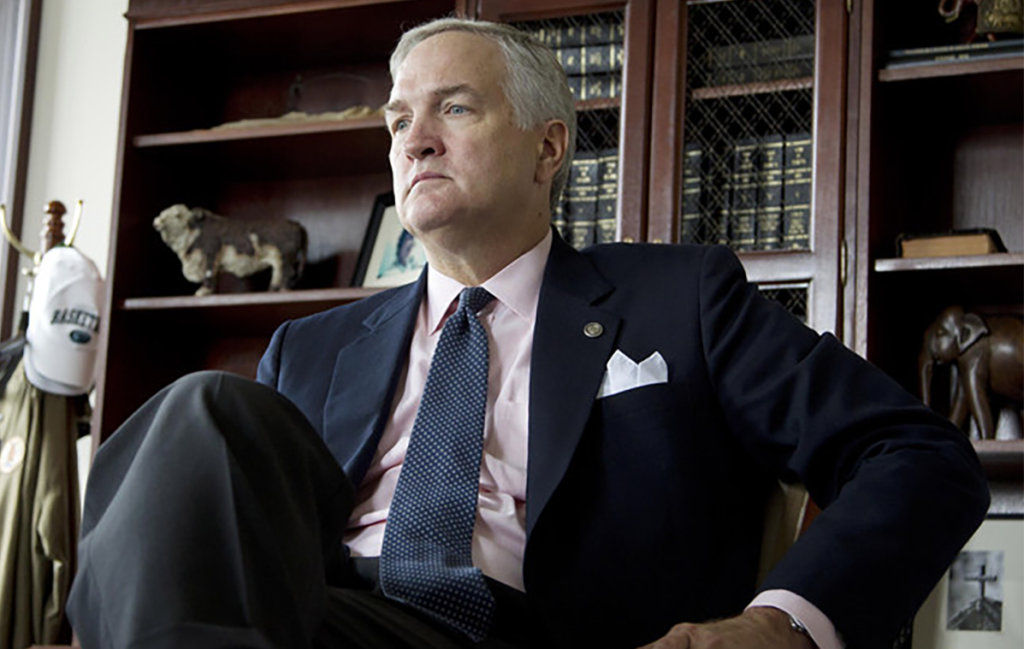
Alabama Attorney General Luther Strange said Monday that a federal court has upheld of a state law that prohibits transfers of political contributions from one PAC to another PAC. The U.S. District Court for the Northern District of Alabama ruled in favor of the state last Friday in the case of Alabama Democratic Conference v. Strange. The court ruled the state has an interest at hand — preventing corruption or the appearance of corruption — so compelling that despite a raft of recent rulings claiming such contributions and transfers are 1st Amendment-protected speech, Alabama did not act improperly in restricting them. The ruling stated that although campaign contributions and transfers thereof should be given the presumption of legality since they are de jure equivalent to political speech, Alabama’s law was crafted carefully enough to avoid encroaching on that speech. The court ruled moreover the law was properly aimed at prohibiting only the kinds of illicit transfers of campaign cash primarily aimed at hiding the original source, thereby evading public scrutiny. Strange applauded the move in a release Monday. “I am pleased that the Court has upheld this important tool in Alabama’s ongoing fight against public corruption,” said Strange, first elected AG in 2010 after ousting incumbent Troy King in a GOP primary. “We will continue to defend the PAC-to-PAC transfer law whenever necessary.” Strange also commended his office’s Will Parker, an assistant AG in the Constitutional Defense Division. The ruling was a coup for Strange, who is an ardent supporter of a strong state role within the nation’s federal system. The plaintiff had sought relief against the state’s head law enforcement officer, saying the law was an unnecessarily onerous burden on political activity.
Libertarian donors put up $6 million for Rand Paul GOP bid
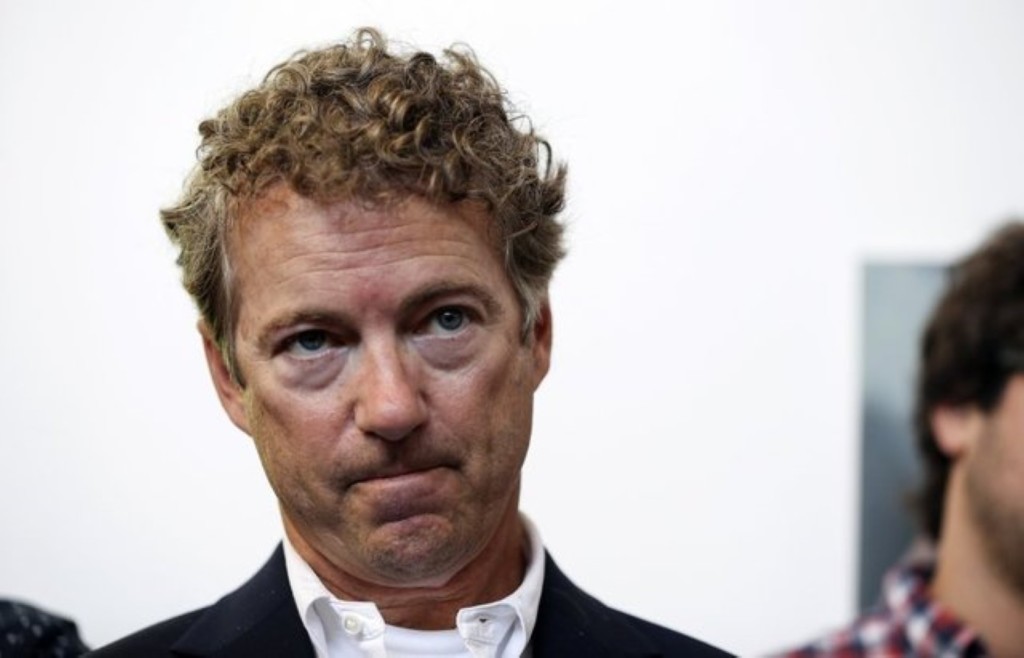
Deep-pocketed libertarians are giving big to help Rand Paul win the Republican presidential primary. Three super PACS supporting the libertarian-leaning Kentucky senator said they raised a combined $6 million through June 30. That’s on top of the nearly $7 million that Paul’s campaign reported pulling in between his April announcement and the end of last month. “There are some very wealthy libertarians out there, and they’re all going to be hearing from me,” said Ed Crane, president of one of the pro-Paul super PACs, called Purple PAC. “It’s a strong potential base for Rand.” Paul’s top backer so far is Jeff Yass, managing director of high-frequency trading firm Susquehanna International Group, who split a $2 million contribution last month between Purple PAC and another pro-Paul super PAC, America’s Liberty. Yass and Crane know each other through the Cato Institute, a free market think tank in Washington that began in the 1970s with the backing of billionaire energy executives Charles and David Koch. Crane is a co-founder, and Yass is a board member. Joining Yass in the $1 million donor club is George Macricostas, head of a data center company called RagingWire. Those two accounted for most of America’s Liberty’s $3.1 million in fundraising so far this year. A third super PAC, Concerned American Voters, has not yet filed a fundraising report, but its leaders said they’ve raised $1.9 million. Scott Banister, a tech investor in Silicon Valley, is among the donors. Matt Kibbe, senior adviser to Concerned American Voters and former leader of the libertarian activist group FreedomWorks, said Paul is testing the idea that libertarian donors will make a major investment in a candidate, not just a cause. “Libertarians are used to giving to ideas and issues campaigns,” Kibbe said. “Do they make the leap and give to a liberty-minded candidate with a pathway to victory? I think the answer is yes.” Paul is one of an expected 17 Republican presidential candidates, and he’s in the top half of the class for fundraising. Republished with permission of The Associated Press.
Jeb Bush returns to South Florida for grassroots PAC fundraiser
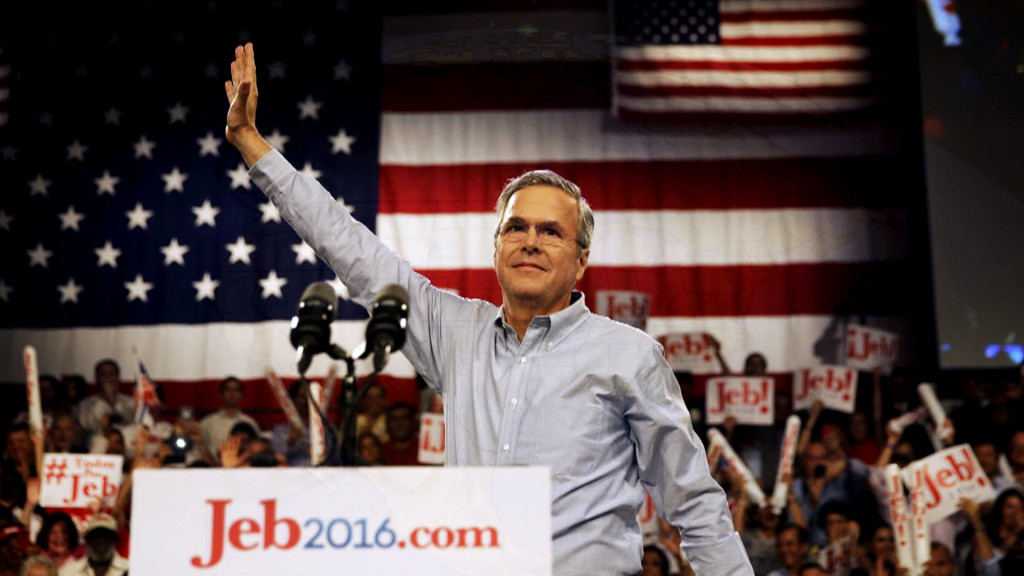
Jeb Bush returned to his South Florida political roots on Monday with a $25-a-person fundraiser for his political action committee, a contrast with recent private high-roller events. The Republican former Florida governor appeared at the Right to Rise PAC event in a local community center wearing a white Cuban-style guayabera shirt and frequently shifted from English to Spanish. About 450 people attended in a heavily Hispanic suburb west of Miami, including Bush’s wife Columba and son Jeb Jr. Neither of them addressed the crowd. Bush has not yet officially declared his candidacy for the GOP presidential nomination but has been raising money for the PAC. A recent two-day retreat at a swank Miami Beach hotel was closed to the press and open mainly to 300 invited, wealthy donors. The Monday event, meanwhile, was dubbed the “Miami Hometown Reception” and was held at a building named for Jorge Mas Canosa, a prominent Cuban-American exile leader. Former U.S. Rep. Lincoln Diaz-Balart introduced Bush to the friendly crowd. In his speech, Bush discussed familiar conservative themes such as lower taxes, immigration reform, fewer regulations and a more robust U.S. foreign policy. Bush also said that voters want political parties to cooperate in tackling issues. “I know for a fact we need to start solving problems again in Washington, D.C.,” Bush said. “This is going to be an extraordinary time, but first we have to fix these things.” Bush has headlined more than 60 fundraisers this year and claims he has already set a record for raising GOP cash. Right to Rise does not plan to release fundraising figures until July. Republished with permission of The Associated Press.


